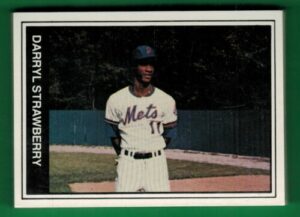the only one
Al Jones, a tall right-hander from Charleston, made his big league debut for the Chicago White Sox on this date in 1983, becoming the first and to date only Alcorn State alumnus to make The Show. On in relief against Baltimore at old Memorial Stadium, he gave up two hits, got Cal Ripken Jr. to hit into a double play, then was pulled after walking the next batter. He wound up being charged with a run but got a hold in a game the White Sox won 6-4. Jones pitched only 26 more games in MLB, finishing his career in 1985 with a 3.77 ERA and five saves. He stayed in the game, pitching until 1999 in the Chinese Professional Baseball League, where he had a 3.69 over six years. Alcorn’s program, which has fallen on hard times in recent years, has produced some good players, foremost among them Bill Foster, a Negro Leagues legend from the 1920s and ’30s who is enshrined in Cooperstown. The Braves have had 13 players drafted, including Jones (13th round in 1981), Corey Wimberly, Angel Rosa, Marcus Davis and John Harrington. Greg Daniels hit .545 for the 1983 Braves, the second-highest average ever by an NCAA Division I player. Current Atlanta star Michael Harris II’s father played at Alcorn. But Jones is the only one to reach the big leagues — 40 years ago today — and there are no Braves alums currently in affiliated ball. P.S. Up in the Cape Cod League, Southern Miss’ J.B. Middleton got the win and Kros Sivley the save as Hyannis beat Falmouth on Saturday to advance in the playoffs. USM’s Will Armistead pitched the ninth inning in Hyannis’ win in Game 1 on Friday. … Yarmouth-Dennis, with Braden Montgomery (Madison Central alum) and Hunter Hines (Mississippi State) on its roster, faces a decisive Game 3 today against Brewster. Montgomery is 2-for-9 with a homer in the series; Hines, the CCBL home run champ, didn’t play in a win in Game 2. … The semi-pro Hattiesburg Black Sox went 2-2 in the NABF Major Division World Series in Michigan, bowing out in Saturday’s quarterfinals. … The Smith-Wills Stadium-based Hank Aaron Sports Academy is holding its Fantastic 44 “Winner Take All” game today at 6 p.m. The 44 participating players are from high schools all over the state and were selected by coaches and instructors that oversaw three showcase events this summer at the Jackson facility.

